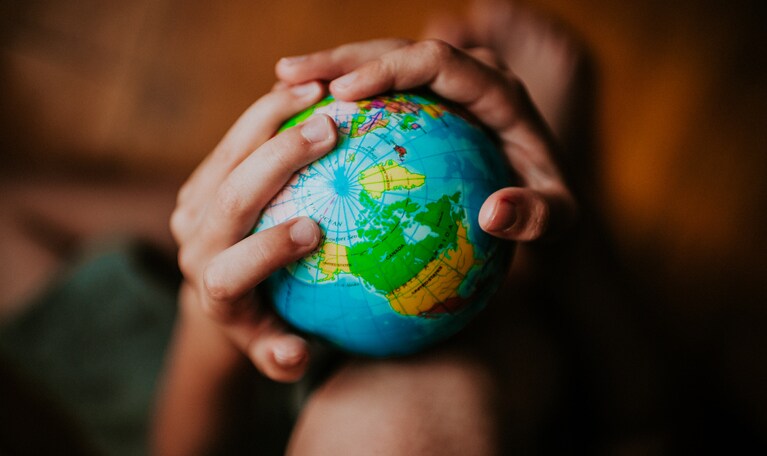How climate change is impacting potential parents’ decisions.
When you’re a parent, worrying about your children is a full-time job. But in an age of political tumult and the impending threat of climate change, it seems people are feeling more worried than ever before. For parents and would-be parents, there’s genuine fear about what the future holds for kids, and it’s changing how they approach family planning altogether. There’s a growing movement of people who are limiting the number of children they plan to have, delaying parenthood, or even planning to skip having kids altogether.
In July, Prince Harry told Vogue UK that he and Meghan Markle are considering only having two children because they’re worried about a warming planet. Miley Cyrus took it a step further, telling Elle she intends to remain childless because we’re “inheriting a s**t planet,” and “I’m not bringing in another person to deal with that.”
And it’s not just household names who are leading the charge. In Britain, there’s a group of activists called BirthStrikers who are refusing to start having children or add to their existing families because of climate change and the state of the environment. In the U.S., there’s an organisation called Conceivable Future, in which women are working to raise awareness about the impacts of climate change on their reproductive futures and fighting to stop fossil fuel subsidies. Teens across North America are using #NoFutureNoChildren to indicate their plans to remain childless once they reach adulthood unless something is done to address the effects of climate change.
When you’re a parent and you see these conversations happening around you, it’s hard not to feel afraid, confused and even guilty about the state of the world. In a recent report on climate change by the United Nations Intergovernmental Panel on Climate Change, scientists predict that by 2040 or even earlier, the world may face food instability, a mass die-off of coral reefs, and “rare extreme flooding events” that occur annually. Major ice sheets and glaciers are melting at an alarming rate, releasing even more trapped greenhouse gases into the atmosphere. They also predict that sea levels could rise by at least a foot or more by the middle of this century.
“I think about the impact of climate change on my daughter’s life at least once a day, every single day,” Madeleine Somerville, a mom of one from Alberta, Canada, tells Care.com. “I’ve considered stopping contributions to her RESP [Canada’s Registered Education Savings Plan] because I’m not confident that in 12 years, when she’d be ready to attend post-secondary education, that path will be available to her. I worry I should be investing in food and water supplies and survival gear. I feel insane saying that, but it’s true.”
A 2018 poll published in the New York Times showed that one-third of American men and women ages 20 to 45 cite climate change as a factor in their decision to have fewer children. As a mom of two who has thought often of having a third baby, climate change is a serious factor for me, as well. In 2011, when I started my family, the impact of climate change seemed farther away, and I had faith that politicians would hear our concerns and take action. Naive? Perhaps. But as it stands now, I feel that my focus is best directed at fighting for whatever change may still be possible and helping my children prepare to navigate an uncertain future, rather than expanding my family more.
Somerville says she, too, has factored climate change into her future decisions about children.
“I never thought I’d have only one child, and while my divorce was the first factor to sideline my plans for more, I also began to feel terrified about the idea of shepherding a toddler through the worst of what’s to come,” she says.
No two families are the same, and many parents are trying to remain hopeful about what can still be done to give our kids a better future.
“I worry about raising kids in this time when climate change feels like such a real threat, but I try not to panic by teaching them ways to help — reusable water bottles, walking instead of driving when we can,” Megan Zander, a mom of twins, tells Care.com. “I don’t know how much it will help, but I feel like I’m trying to teach them to make things better for themselves and future generations.”
Also inspiring are young climate activists like Xiuhtezcatl Martinez, Greta Thunberg and others. The Global Climate Strike in September proved that there are so many people out there thinking about these issues and actively working for change every day. Ultimately, how people feel about the threat of climate change and how it impacts their family planning decisions is deeply personal. But the many ways people are approaching this problem prove that none of us are alone in our worries, our fears or our refusal to give up hope.
By Ashley Austrew.
Read Next: How You Can Reduce Your Plastic Usage
Read Next: Green Cleaning Solutions That Really Work
Read Next: 7 Benefits of Green Cleaning
